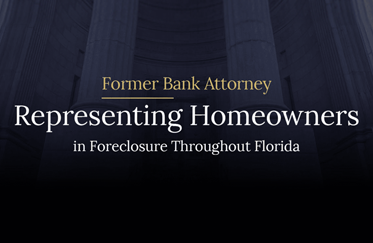I have Foreclosure Sale Surplus cases all over the State of Florida. Some are from foreclosure sales where the mortgage lender foreclosed on the property. Some are from a Homeowner’s, Condo Owner’s Association, or other lienholder foreclosing on the property. The issue that many people seem to have is the difference between a Superior (Senior) lienholder and a Subordinate (Junior) lienholder. Who is entitled to the Surplus Funds? Basically, it all depends on who is the one who filed the foreclosure case and who is considered to be a subordinate lienholder.
To start with, anyone who has a mortgage or statutory lien on your property can file a foreclosure case. Mortgages can be purchase money mortgages, or they could be second mortgages, also called a Home Equity Line of Credit (HELOC). Other statutory liens could be judgment liens, tax warrant, assessment lien, or construction lien. Any of these lienholders could potentially file a foreclosure case. But if a foreclosure case is filed and the property sells at a foreclosure sale and there are Florida Foreclosure Sale Surplus Funds after the sale, who is entitled to the funds?
According to Florida Statute, 45.033(1), “There is established a rebuttable presumption that the owner of record of real property on the date of the filing of a lis pendens is the person entitled to surplus funds after payment of subordinate lienholders who have timely filed a claim.” That means that the person who owned the property at the time the foreclosure case was filed is entitled to the surplus funds, only after any subordinate lienholders that have timely made a claim. So, the plaintiff in the case gets paid, then the leftover funds go to the former owner and the subordinate or junior lienholders. Who determines who are subordinate lienholders and what priority they are paid?
Florida Statute 713.07(1) states, “liens shall attach at the time of recordation of the claim of lien and shall take priority as of that time.” This is called “first in time” priority of liens. However, it doesn’t mean that all liens fall into this as subordinate liens. If the foreclosure action was filed by a Homeowner’s Association, there may not be any subordinate, or junior lienholders. For instance, a mortgage lien is always higher in priority than that of the association and therefore can never be a subordinate lienholder at the association foreclosure and therefore is not entitled to the Florida Foreclosure Sale Surplus Funds from the association’s foreclosure action. Sometimes even a second mortgage is higher in priority than the association and it cannot receive the funds. Those liens that are considered higher in priority than that of the foreclosing lien are not extinguished and can have their own chance to foreclose on the property since their mortgages are still attached to the property.
Sometimes an evidentiary hearing has to be done to determine priority. In this case, the court will look to the actual liens and see when they were recorded. The judge will decide whether these are actually subordinate liens, what order they are in priority, or if they are superior liens. If they are superior, they will not be allowed to take any of the funds and will have to file their own foreclosure case. If they are found to be subordinate, and they have timely made a claim for the funds, they will be granted their portion of the surplus funds (if any).
I often hear from third-party purchasers (person or entity who bought the property at a foreclosure auction) about how unfair this is because they didn’t know there were other liens on the property when they purchased it at an auction. I let them know that there is nothing I can do and based on every bit of Florida law, a third-party purchaser is not entitled to any of the Florida Foreclosure Sale Surplus Funds. A third-party purchaser is neither a lienholder, nor are they the former owner. They are the current owner and by Florida law, they take the property subject to any liens or encumbrances still attached to the property at the time they purchased it. This is just how the laws are written and you should always run a title search prior to purchasing a foreclosure property. A few hundred dollars spent on a title search will save you tens or hundreds of thousands of dollars in the future.
If you are a former owner or the heir to a deceased former owner of a property and you believe you are entitled to Florida Foreclosure Sale Surplus Funds, please give me a call for a free consultation. I handle Foreclosure Sale Surplus Funds and Tax Deed Sale Surplus Funds in every County in the State of Florida, and I don’t get paid unless you do.

